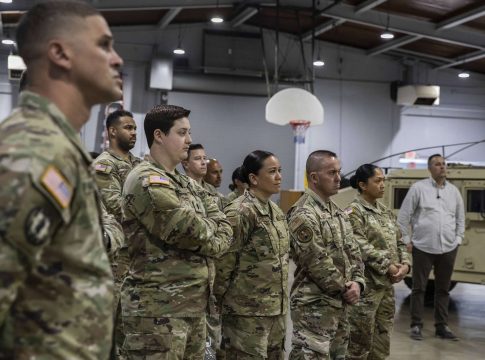Understanding Mental Health in Service Members: A Call for Compassionate Awareness
Recent assessments have unveiled a concerning trend among service members transitioning from military to civilian life. An extensive health evaluation encompassing over 50,000 troops revealed that 67% screened positive for at least one mental health condition. This statistic underscores the critical need for awareness, understanding, and support for those who have served.
Common Mental Health Challenges
Among the most frequently reported concerns were post-traumatic stress disorder (PTSD) and depression. These conditions can profoundly impact individuals’ lives, affecting their ability to adjust to new environments and relationships.
- PTSD may manifest through flashbacks, anxiety, and avoidance behaviors.
- Depression can exhibit symptoms like persistent sadness, loss of interest in activities, and changes in sleep patterns.
Understanding these challenges is the first step toward fostering an environment of support and healing.
Barriers to Seeking Help
Despite the alarming rates of mental health conditions, more than 50% of service members declined referrals to the Defense Department’s inTransition program, which offers vital mental health resources. This reluctance can stem from various factors, such as stigma surrounding mental health issues, fear of judgment, or concerns about the impact on disability claims.
It’s crucial to acknowledge these barriers and encourage open discussions about mental health within the military community and beyond. Sharing experiences can normalize seeking help and promote healing.
Moving Forward with Empathy
As we approach significant milestones, such as the 250th birthday celebration of the Army, it’s vital to reflect on the importance of mental health awareness. Organizations, government agencies, and communities should embrace initiatives that prioritize mental wellness, offering flexible work arrangements and supportive resources.
To foster an environment of understanding and care, consider these strategies:
- Educate Yourself: Learning about common mental health issues can provide insight into the experiences of others.
- Encourage Open Dialogue: Create safe spaces for conversations about mental health without fear of stigma.
- Promote Resources: Ensure that information about available mental health services is accessible.
Conclusion: A Collective Responsibility
Supporting the mental health of our service members should be a collective effort. By approaching these issues with empathy and understanding, we can foster a society that values mental wellness. Let us remember that acknowledging and addressing mental health challenges is a vital part of honoring the sacrifices made by our service members and helping them navigate the transition back to civilian life.
Together, we can build a compassionate community that uplifts and empowers all those affected by mental health challenges.

Covers wellness, nutrition, mental health, and daily life tips.
Bio: Talia brings a background in health journalism and holistic living to help readers live better, one tip at a time.

